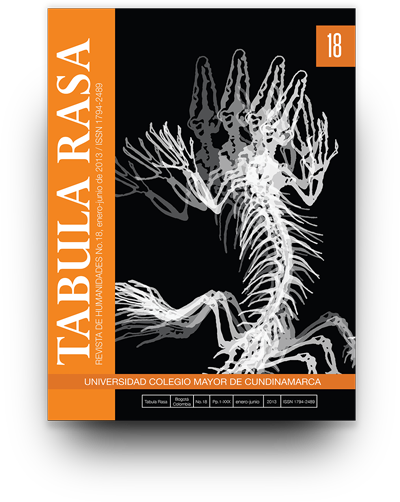Show authors biography
The dominant paradigms of well-being continue to insist on what this term means. In the same way, public policy makers (policy makers) strive to realize the dominant visions of well-being. This article examines the notion of well-being recently adopted by the Bolivian constitution. Great importance is given to the indigenous notions of "living well", a concept that could be translated as "living well in groups" under the principles of sociability and the promotion of reciprocity values. Adopted by Bolivians in its 2009 Constitution as one of the fundamental values, the article explores the contribution it can make to the notions of well-being. argues that "living well" constitutes progress in our notions of well-being because of the concept's emphasis on harmonic relationships, not only in society, but also with nature (the pachamama - our Mother Earth -), providing a link with the sustainability that current conceptions of well-being often do not achieve.
Article visits 88 | PDF visits 60
Downloads
Albó, X. 2009. Suma qamaña = el buen convivir. CIPCA, Bolivia. Disponible en http:// sumakkawsay.files.wordpress.com/2009/06/albo_sumaqamana.pdf [Acceso: 20 de abril, 2012].
Artaraz, K. 2012. Bolivia: Refounding the Nation. Londres: Pluto.
Arze, C. y Kruse, T. 2004. “The Consequences of Neoliberal Reform”. Reporte NACLA
sobre las Américas 38(3): 23-28.
Asamblea Constituyente. 2008. Nueva Constitución política del Estado. Versión oficial. La Paz: Representación presidencial para la asamblea constituyente (REPAC).
Brennan, B. y Olivet, C. 2007. “Regionalisms Futures: The Challenges for Civil Society”, Global Social Policy, 7(3): 267-270.
Calestani, M. 2009. An Anthropology of Wellbeing: Local Perspectives and Cultural Constructions in the Bolivian Plateau, Tesis Doctoral, Londres, Departamento de Antropología: Goldsmiths College, Universidad de Londres.
Corvalan, C., Hales, S. y McMichael, A. 2005. Ecosystems and Human Wellbeing: A Health Synthesis. A Report of the Millennium Ecosystem Assessment. Ginebra: Organización Mundial de la Salud. Disponible en http://www.who.int/globalchange/ecosystems/ ecosys.pdf [Acceso: 20 de abril, 2012].
Dasgupta, P. 1993. An Inquiry into Bienestar and Deprivation. Oxford: Clarendon.
Dasgupta, P. 2001. Human Wellbeing and the Natural Environment. Oxford: Oxford Univ. Press.
De la Barra, X. y Dello Buono, R. A. 2009. Latin America after the neoliberal debacle: Another region is possible. Lanham: Rowman and Littlefield.
Dolan, P. y Metcalfe, R. 2012. “Measuring Subjective Wellbeing: Recommendations on Measures for use by National Governments”. Journal of Social Policy 2012, 41, 2, 409-427. De Marzo, G. 2010. Buen vivir. Para una democracia de la tierra. La Paz: Plural Editores.
De Sousa Santos, B. 2010a. Refundación del Estado en América Latina: Perspectivas desde una epistemología del sur. La Paz: Plural.
De Souza Santos, B. 2010b. “Hablamos del socialismo del buen vivir”. Camino Socialista 9, pp.4-7.
Doyal, L., y Gough, I. 1991. A Theory of Human Need. Londres: Macmillan.
Exeni, J. L. 2007. Democracia pactada. En Ayo, D. (ed.) Democracia boliviana: un modelo para des armar. FES-ILDIS; La Paz, pp. 34-50.
Farah, I. y Vasapollo, L. (eds.). 2011. Vivir bien: ¿Paradigma no capitalista? La Paz:
CIDES-UMSA.
Gilligan, C. 1982. In a different voice: Psychological theory and women’s development. Cambridge, MA: Harvard University Press.
Fatheuer, T. 2011. Buen Vivir. A brief Introduction to Latin America’s new concepts for the good life and rights to nature, Volumen 17, Serie de Publicaciones sobre Ecología, Berlín: Heinrich Boll Foundation.
Gigler, B-S. 2005. “Indigenous Peoples, Human Development and the Capability Approach”. Londres: School of Economics, Reino Unido. 8 de agosto, 2005. Artículo para la 5ª Conferencia Internacional sobre el Enfoque de las Capacidades. Knowledge and Public Action.
Gough, I., McGregor, A. y Camfield, L. 2007. ‘Theorising welfare in international development’ En I. Gough y A. McGregor (eds.), Wellbeing in developing countries: From theory to research, Cambridge: Cambridge University Press.
Graham, C. 2011. The Pursuit of Happiness: Toward an Economy of Well-Being, Washington: Brookings Institution Press.
Gray, M., Lobao, L. y Martin, R. 2012. “Making space for well-being”. Cambridge Journal of Regions, Economy and Society 2012, 5, 3-13.
Huanacuni Mamani, F. 2010. Vivir bien/Buen vivir: Filosofía, políticas, estrategias y experiencias regionales. Instituto internacional de integración-Convenio Andrés Bello: La Paz.




